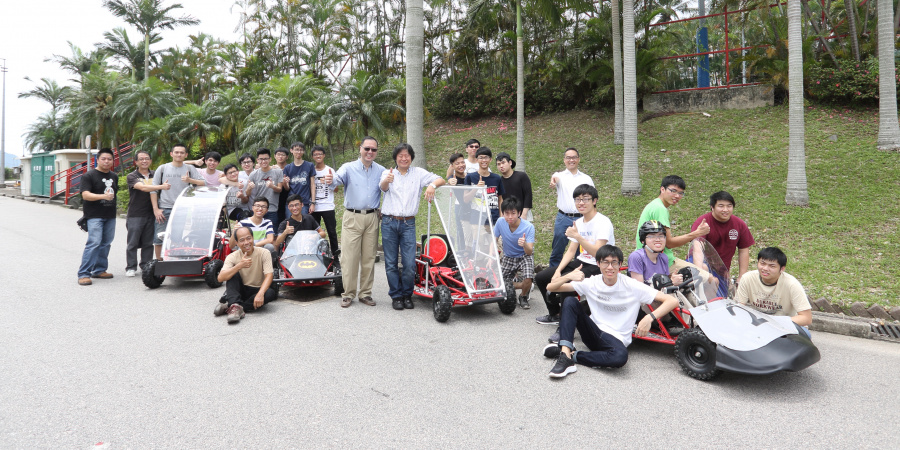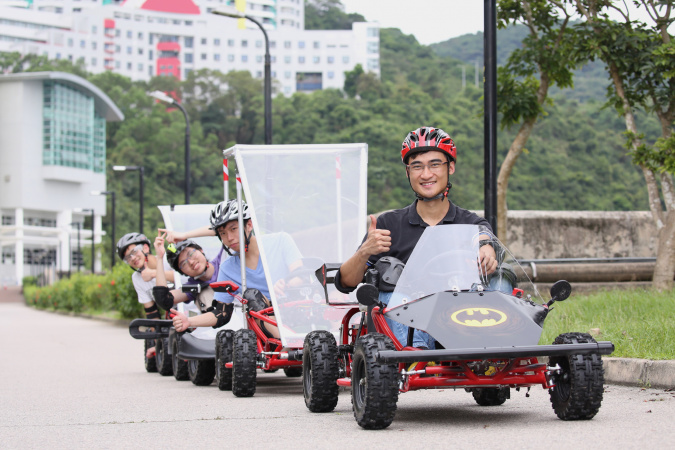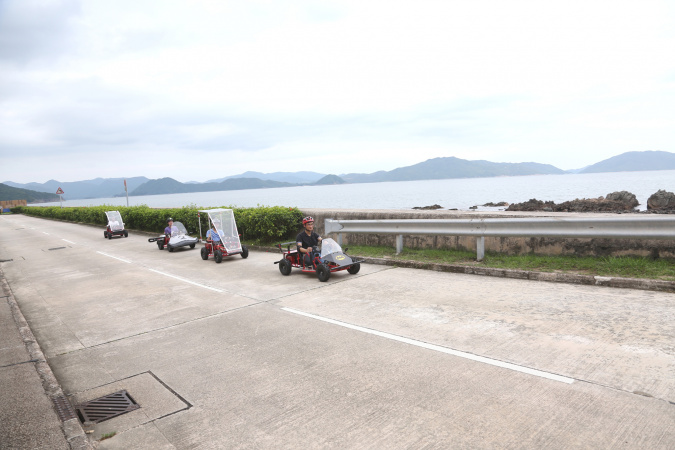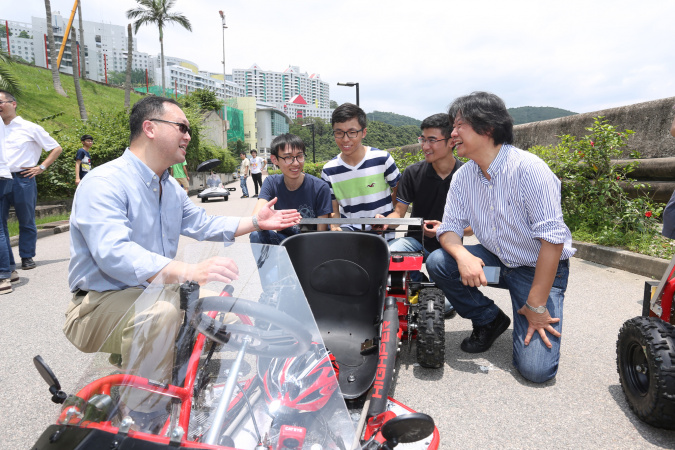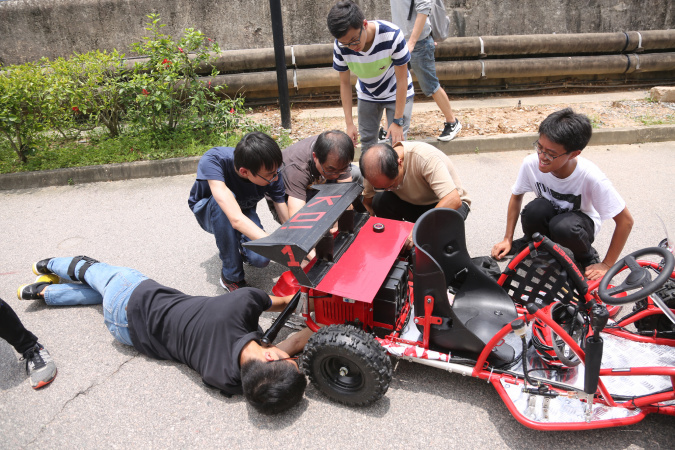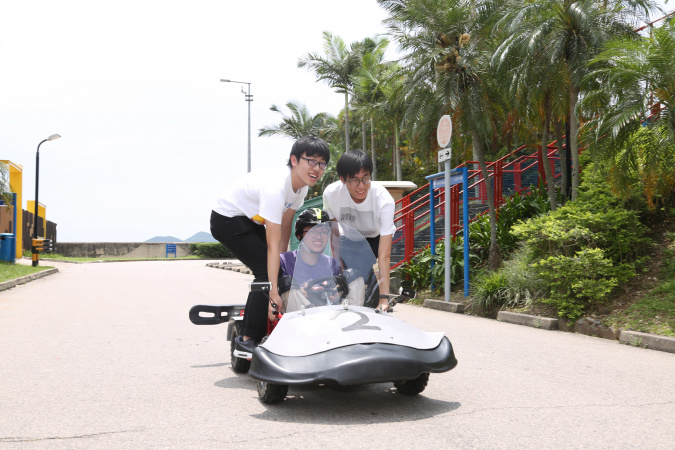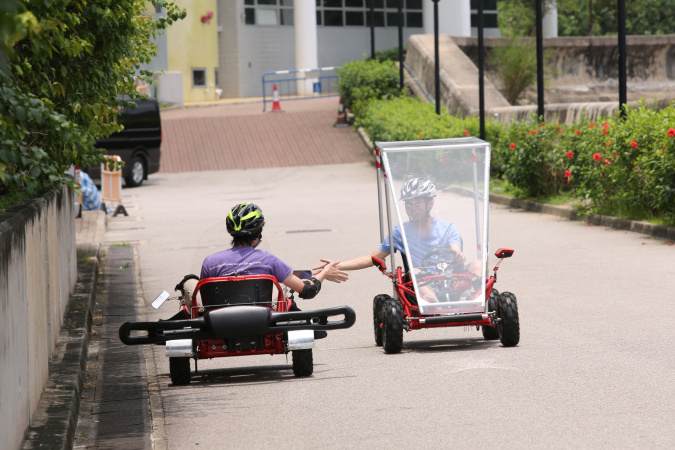New Electric Vehicle Course Gives a Boost to Experiential Learning
Electric vehicles (EV) have been gaining increasing popularity as a means of green transport in many sustainable cities worldwide. Engineering students at the Hong Kong University of Science and Technology have the chance to build their own scaled-down EVs, thanks to a new undergraduate course provided by the Department of Mechanical and Aerospace Engineering (MAE).
Experiential learning, which is learning through experience, has been a pillar of the School of Engineering’s education innovation initiatives. Launched in Spring 2017, the Design, Build and Test an Electrical Vehicle course (MECH4000F) provides a new addition to the School’s wide-ranging experiential learning courses that include the building of airships, solar cars, robots and model planes.
The course is funded by the University Grants Committee’s Teaching Development Grant, with the help of HKUST’s Center for Education Innovation. Focusing on hands-on experience, the course featured close collaboration between academic and industrial supervisors. It was jointly taught by Adjunct Associate Professor Chung-nin Ko, a seasoned engineering professional with extensive industry experience in multinational companies and currently a Chief Technology Officer of Kam Yuen (Group) International Limited, and MAE faculty Professor David Lam, with support from MAE Project Assistant Mr Sing-chuen Chan and other teaching and technical staff.
A total of 23 Year-2 and Year-3 mechanical and aerospace engineering undergraduates joined the course in Spring 2017. They were grouped into four teams and each team built their own one-seater EV. During the course, they learned the big picture of the EV, the subsystems involved in it, and how to fit different parts into the whole engineering system. They needed to design, assemble, integrate, debug and roadtest the EV to optimize it in terms of safety, speed, electricity consumption and budget.
“In the real world, it is important for engineers to have a big picture of the things they are building. You don’t need to build every single part of the car, but you need to have an overall integrated view and understand how total performance depends on the working of different parts and their integration,” said Prof Ko.
During the process of transforming a design concept into a real product, students developed improved understanding of stakeholder requirements and learned how to break down the entire design concept into manageable tasks. Prof Ko said this is similar to how engineers work in the industry. “Engineers need to actualize customers’ expectation, identify the problems and find out the solutions. Students are practicing these in advance in the course.”
A race was held at the end of the course where the four groups put all they had learned into practice and competed to be the fastest to finish the track. Group 4 won the first place as their EV was waterproof and performed the best on the contest day which had rainy weather.
Along with the EV course, the MAE Department is setting up an Electric Vehicle Interest Group (EVIG), taking a similar approach as the Aeronautics Interest Group (AIG) which was established in 2011. “Same as AIG, EVIG is set to be student-initiated with support from the department. We hope that EVIG will serve as a platform for EV enthusiasts from different disciplines to share ideas and learn from each other,” said Prof Lam.
Student Kwong-fung Tong said the course greatly enhanced his design and manufacturing experiences of building an engineering product. “While I have learned a lot of theories on how things work, I don’t have much practical experience on building a real prototype until joining this course. The hands-on experience of building an EV deepens my understanding of the engineering theories and will definitely be helpful for my future career,” he said.
Another student Chuk-kwan Siu said, “This course does not only enrich our understanding of the steps in building an EV, but most importantly introduces to us the engineers’ way of thinking. This engineering mindset is essential for us to apply our engineering knowledge into daily life effectively and for our future development both has an engineer and researcher. Also, racing against other classmates in the final race was truly fun and exciting.”
Prof Ko added that the course involved practical knowledge that is new to the students who are mostly in Year 2 (e.g. AutoCAD drawing, metal fabrication and casting, bench fitting), but they were highly motivated and able to pick up the skills fast, and finally all teams could build an EV successfully. He said that the next step will be engaging students in an external EV competition.
The course will be run again in Spring 2018.
Related link:

